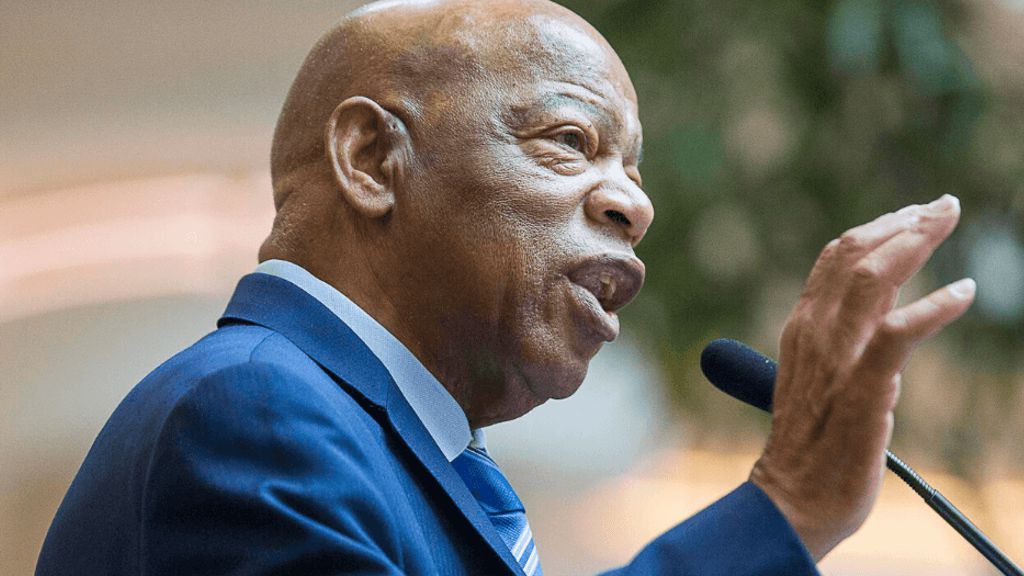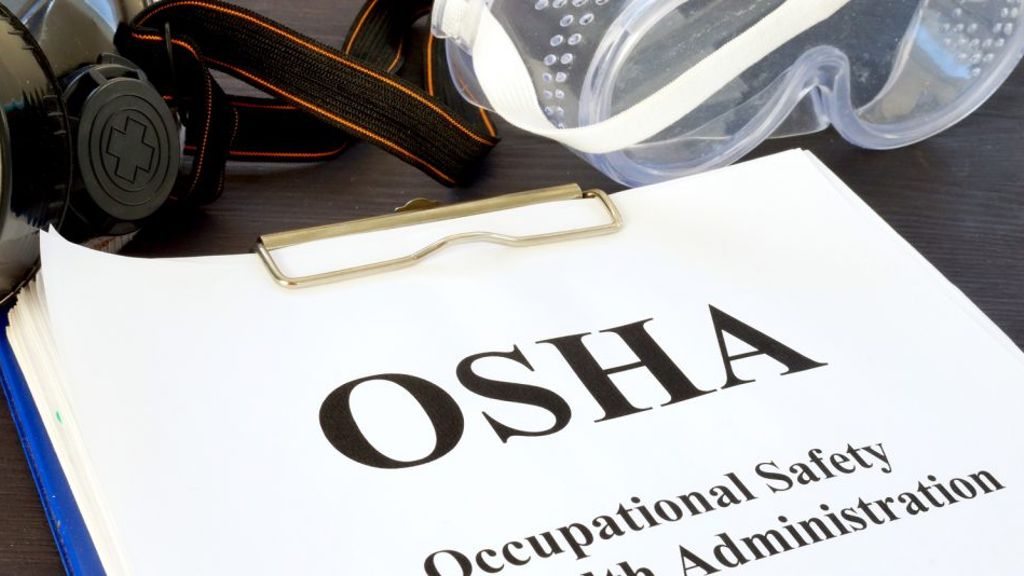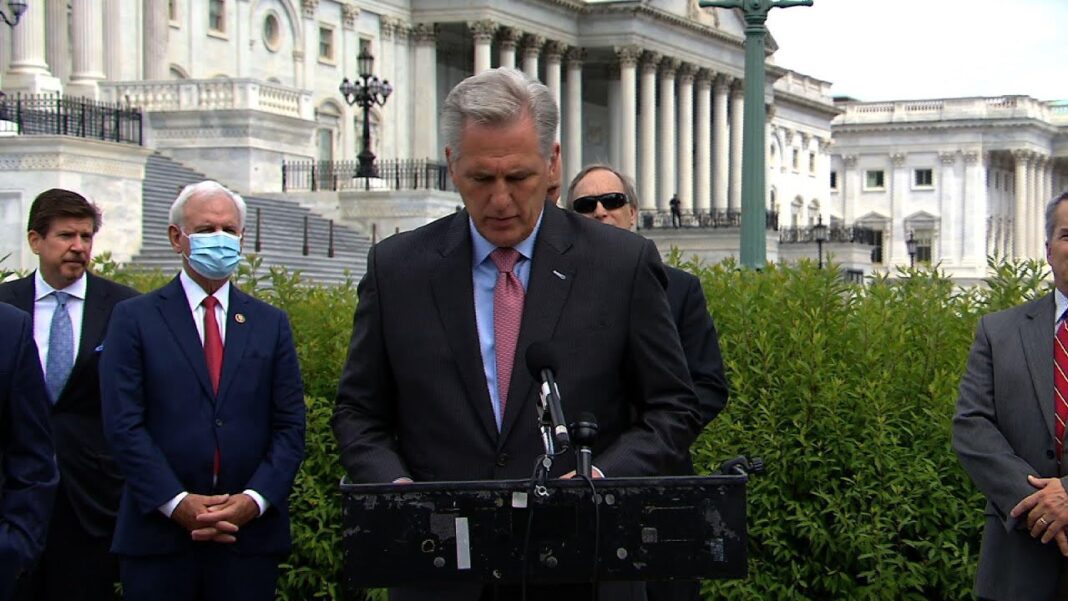SUMMARY
It is easier to register and vote today than at any other time in America’s history. The permanent, nationwide provisions of the Voting Rights Act, such as Section 2 and Section 3, are more than adequate to protect voting rights in those rare instances where discrimination does occur. There is no need to bring back the preclearance provisions of Section 5 or to implement a new, vastly expanded Section 5. There is no longer any justification for giving the federal government the ability to veto the election laws and regulations that citizens and their elected representatives choose to implement in their respective states. H.R. 4 is a federal power grab designed to thwart election reform and manipulate state redistricting decisions.
KEY TAKEAWAYS
- It is easier today than ever before in our nation’s history for eligible Americans to participate in the electoral process.
- The permanent, nationwide provisions of the Voting Rights Act are more than adequate to protect voting rights in the rare instances where discrimination occurs.
- H.R. 4 is a politically motivated federal power grab designed to thwart necessary election reform and manipulate redistricting decisions made by the states.
H.R. 4, the John Lewis Voting Rights Advancement Act, would give liberal bureaucrats in the Department of Justice (DOJ) the power to veto changes of polling place locations, voter ID and registration requirements, and the boundary lines in redistricting in every single state. It would also change legal standards to make it almost impossible for states to defend themselves against meritless litigation.
Supreme Court Ruling in Shelby County v. Holder
H.R. 4 is intended to overturn the decision by the Supreme Court of the United States in Shelby County v. Holder (2013),1
Shelby County v. Holder, 570 U.S. 529 (2013). which struck down the coverage formula for Section 5 of the Voting Rights Act (VRA). Section 5 was intended to be a temporary provision that required covered jurisdictions to get approval (preclearance) from the DOJ or a federal court in Washington, DC, before making any changes in their voting laws.
The 1965 coverage formula was based on low voter registration and turnout in presidential elections, which the Court found to be unconstitutional because the 2006 renewal of Section 5, which would have extended that provision for another 25 years, was based on 40-year-old data that did not reflect contemporary conditions. Census Bureau data show that black voter turnout today is on par with or exceeds that of white voters in many of the formerly covered states and that there are no disparities traceable to discriminatory behavior by states.
This decision did not affect other provisions of the VRA that protect voters, such as Section 2. There is no need for new legislation reimposing (and expanding) the onerous preclearance requirement and no evidence that the permanent provisions of the VRA are not adequate to protect voter rights.
The proposed legislation is almost certainly unconstitutional because it does not satisfy what the Supreme Court said was required for coverage: The 1965 standards were obsolete, and any requirement that states obtain federal approval of election changes could be imposed only if Congress found “blatantly discriminatory evasions of federal decrees;” lack of minority office holding; voting tests and devices; “voting discrimination ‘on a pervasive scale;’” or “flagrant” or “rampant” voting discrimination. Those conditions are nowhere to be found in 2021.
In the entire eight years of the Obama Administration, the Justice Department filed only four enforcement cases under Section 2 of the VRA, and there was no rise in enforcement actions by the department after the Shelby County decision.2
Hans A. von Spakovsky, “The Myth of Voter Suppression and the Enforcement Record of the Obama Administration,” University of Memphis Law Review, Vol. 49, Book 4 (2019), p. 1147, https://www.memphis.edu/law/documents/07_von_spakovsky.pdf (accessed May 24, 2021). According to a recent study, the decision “did not widen the Black–White turnout gap in states subject to the ruling.”3
Kyle Raze, “Voting Rights and the Resilience of Black Turnout,” February 7, 2021, p. 1, https://kyleraze.com/files/shelby_county_voting.pdf (accessed May 24, 2021). In fact, the U.S. Census Bureau survey of the 2020 election reports “the highest voter turnout of the 21st century.”4
Press release, “2020 Presidential Election Voting and Registration Tables Now Available,” U.S. Department of Commerce, U.S. Census Bureau, April 29, 2021, https://www.census.gov/newsroom/press-releases/2021/2020-presidential-election-voting-and-registration-tables-now-available.html (accessed May 24, 2021).
What the VRA Already Provides
Section 2 is a permanent, nationwide ban on discrimination in voting based on race, color, or membership in a language minority group.5
U.S.C. § 10301. It prohibits intentional discrimination as well as discriminatory “results” based on a court’s review of the “totality of the circumstances” under which it occurred.
Section 3 allows a court to impose a preclearance requirement in a particular jurisdiction for as long as necessary where the court determines that there is intentional misconduct and preclearance is required to ensure compliance with the voting guarantees of the Fourteenth and Fifteenth Amendments.6
U.S.C. § 10302.
What the Proposed Act Would Do
H.R. 4’s stated purpose is to prevent racial discrimination, but it would force racial gerrymandering, make race the predominant factor in the election process, advance the partisan interests of one political party, and prevent common-sense election reforms like voter ID.
It would change Section 3 from requiring a showing of intentional discrimination to allowing other violations of the VRA—most of which require only a showing of “disparate impact” (i.e., a statistical disparity)—to count toward triggering preclearance coverage.
New Coverage Formula for Section 4 of the VRA
Under a new coverage formula, a state government and all of its political subdivisions would be placed under Section 5 preclearance for 10 years if the DOJ determines that 15 “voting rights violations” by local jurisdictions occurred during the “previous 25 calendar years,” even though there were no violations by the state or by the majority of local governments.
Alternatively, entire states would be placed under Section 5 preclearance for 10 years if the DOJ determines that 10 “voting rights violations” occurred during the “previous 25 calendar years” if one of those violations was by the state government.
A political subdivision within a state would be placed under preclearance coverage if it has just three “voting rights violations” during the “previous 25 calendar years.” That trigger is so low that it could end up covering almost any city, county, or town in the country.
“Voting rights violations” include not just final court judgments that a jurisdiction has violated the VRA or the Fourteenth and Fifteenth Amendments, but also settlement agreements, consent decrees, and any preclearance objections made by the Attorney General. Such objections do not require any finding of intentional discrimination; a discriminatory effect based on statistical disparity is sufficient. Such “disparate impact” liability has been misused in many different areas besides voting.
This is especially troubling given the DOJ’s history of filing unwarranted objections under Section 5 based on its bias in favor of liberal advocacy groups. In 2012, a federal court overturned the DOJ’s objection to South Carolina’s voter ID law—but it cost the state millions of dollars to win.7
South Carolina v. Holder, 898 F.Supp.2d 30 (D. D.C. 2012). In 1994, in a Georgia redistricting case, a federal court ruled against the DOJ and wrote a scathing opinion charging that “the considerable influence of ACLU advocacy on the voting rights decisions of the United States Attorney General is an embarrassment” and expressing the court’s “surprise[]” that the DOJ was “so blind to this impropriety.”8
Johnson v. Miller, 864 F. Supp. 1354 (S.D. Ga. 1994), affirmed, 515 U.S. 900 (1995).
This bias has not changed. A 2013 report from the DOJ Inspector General criticized the Voting Section of the Civil Rights Division for hiring a majority of its lawyers from only five advocacy organizations: the American Civil Liberties Union (ACLU); National Council of La Raza; NAACP; the Lawyers’ Committee for Civil Rights Under Law (LCCR); and Mexican American Legal Defense and Education Fund (MALDEF).9
U.S. Department of Justice, Office of the Inspector General, Oversight and Review Division, A Review of the Operations of the Voting Section of the Civil Rights Division, March 2013, p. 209, https://oig.justice.gov/reports/2013/s1303.pdf (accessed May 24, 2021).
Most jurisdictions do not have the resources to fight the DOJ even when its objections are meritless.
Because tallying up court rulings against a jurisdiction, including settlement agreements and consent decrees, will trigger coverage, the DOJ and outside groups will have an incentive to file as many objections as possible and to manufacture litigation. Even settlements of meritless litigation that a state enters into to avoid the cost of litigation would count as “voting rights violations” for purposes of triggering preclearance coverage.
Practice-Based Preclearance Coverage
H.R. 4 also has a new, unprecedented provision that did not exist in the VRA before the Shelby County decision that would vastly expand the DOJ’s power and reach. It creates a “practice-based preclearance” requirement that would apply to every single political jurisdiction in the country, regardless of whether that jurisdiction is covered under the new 10-year coverage formula or ever had a history of discrimination.
Specifically, all state legislatures and local governments would have to get preclearance from the DOJ for any new “law, regulation, or policy” that:
- Adds “elected at-large” seats where two or more racial/language minority groups represent 20 percent of the voting age population (VAP);
- Adds “elected at-large” seats where a single language minority group represents 20 percent of the VAP on Indian lands within the political subdivision;
- Changes political boundaries that reduce by three percentage points the VAP of a single racial/language minority group where two or more racial/language groups represent 20 percent of the VAP or where a single language minority groups represents 20 percent of the VAP on Indian lands;
- Changes the political boundaries of a district where a racial/language minority group has experienced an increase in its population over the past decade of at least 10,000 or 20 percent of the VAP in the district;
- Changes the “documentation or proof of identity” needed to register or vote that is stricter than Section 303(b) of the Help America Vote Act10U.S.C. § 21083(b). or stricter than what existed in state law on the day H.R. 4 is enacted;
- Reduces or alters the distribution of “multilingual voting materials”;
- “Reduces, consolidates, or relocates voting locations,” including for early and absentee voting, or reduces the “days or hours of in person voting on any Sunday” in any census tract where two or more racial/language minority groups represent 20 percent of the VAP or on Indian lands represent 20 percent of a language minority group; and
- Changes state voter registration procedures for removing ineligible registered voters if two or more racial/language minority groups represent 20 percent of the VAP.
These “practices” are so broad and cover such a wide spectrum of election administration and procedures that election changes made by state legislatures and local governments in virtually every state would now be within federal control. This is a startling invasion of state sovereignty that would likely be held unconstitutional by the U.S. Supreme Court, particularly since it allows the DOJ to object based purely on statistical disparities without any showing of any discriminatory purpose or intent.
New Disclosure Requirements
H.R. 4 imposes burdensome and impractical public information disclosure requirements on local officials, such as providing detailed demographic analysis of every single precinct, as well as on state officials with respect to redistricting and other election changes. These changes must be posted within 48 hours, despite the fact that much of the information that must be disclosed, such as the number of registered voters in each precinct, is constantly changing up until Election Day.
Changing Legal Standards and Procedures
While Section 5 of the VRA could be enforced only by the Attorney General, which means that only the DOJ could file an enforcement action against any covered jurisdiction that failed to comply with the preclearance requirement, H.R. 4 would expand enforcement to allow “any aggrieved citizen” to file an enforcement action. This would open the floodgates to litigation by advocacy groups, particularly because the act would allow them to file a federal lawsuit if they disagreed with the DOJ’s preclearance of a voting change.
H.R. 4 creates a novel legal standard for injunctive relief that is unknown in modern jurisprudence and far less stringent that the legal standard used for all other cases in the federal courts. The usual standard for whether a preliminary injunction is appropriate requires a court to determine whether the plaintiff has shown a substantial likelihood of succeeding on the merits, the plaintiff is likely to suffer irreparable harm without the injunction, the balance of equities and hardships is in the plaintiff’s favor, and an injunction is in the public interest.11
See Winter v. Natural Resources Defense Council, 555 U.S. 7 (2008).
However, under H.R. 4, if a plaintiff such as the ACLU simply “raise[s] a serious question” about a voting change and the “hardship” imposed on the state by enjoining the change is less than the “hardship” that would be experienced by the plaintiff if an injunction is not issued, the court must grant an injunction. This weaker standard favors plaintiffs’ lawyers; reverses the principle that the burden of proof is on a plaintiff, not a defendant; and dramatically increases the odds that an injunction will be granted against state and local governments.
In another unprecedented move, H.R. 4 also severely restricts the ability of courts of appeal, including the U.S. Supreme Court, to issue stays of such injunctions. In a section entitled “Grounds for Stay or Interlocutory Appeal,” the act states that the inability of a state to enforce its own voting laws and regulations shall not “constitute irreparable harm to the public interest,” overriding the fundamental democratic principle that the public interest is best served by courts enforcing the laws under which citizens choose to govern themselves through the representational process.
Finally, the Act would dramatically expand the Attorney General’s power to challenge “any act prohibited by the 14th or 15th Amendment” of the U.S. Constitution. Under current law, the Attorney General can bring civil rights claims only under specific federal statutes such as the VRA that authorize the Justice Department to enforce the law. Only private plaintiffs can file lawsuits alleging violations of the Fourteenth or Fifteenth Amendment. This change would allow the Attorney General to become involved in a whole range of constitutional cases unrelated to race discrimination, such as highly partisan, politically charged election disputes like the Bush v. Gore decision of 2000.
Conclusion
Americans today have an easier time registering and voting than at any other time in our nation’s history. Moreover, both the enforcement record of the U.S. Department of Justice and voter registration and turnout data show that there is no widespread, systematic discrimination by state legislators and election officials to prevent citizens from registering and voting. The permanent, nationwide provisions of the Voting Rights Act, such as Section 2 and Section 3, are powerful provisions and more than adequate to protect voting rights in those increasingly rare instances where discrimination does occur.
There is simply no need to bring back the preclearance provisions of Section 5 of the VRA and certainly no need to implement a new, vastly expanded Section 5. It is not 1965, and there is no longer any justification for giving the federal government the ability to veto the election laws and regulations that citizens and their elected representatives choose to implement in their respective states.
H.R. 4 is nothing less than a federal power grab designed to thwart election reform and manipulate redistricting decisions made by the states.
Hans A. von Spakovsky is a Senior Legal Fellow and Manager of the Election Law Reform Initiative in the Edwin Meese III Center for Legal and Judicial Studies, of the Institute for Constitutional Government, at The Heritage Foundation.
See PDF below for references.
Read Original Article on Heritage.org
Enabling Partisan Federal Bureaucrats to Control State Election Laws: The Unnecessary and Unconstitutional John Lewis Voting Rights Advancement Act (H.R. 4) PDF
IB6082








